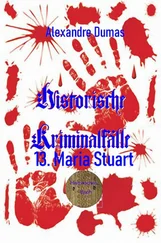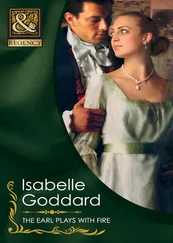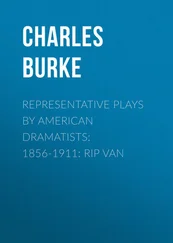Stuart Walker - More Portmanteau Plays
Здесь есть возможность читать онлайн «Stuart Walker - More Portmanteau Plays» — ознакомительный отрывок электронной книги совершенно бесплатно, а после прочтения отрывка купить полную версию. В некоторых случаях можно слушать аудио, скачать через торрент в формате fb2 и присутствует краткое содержание. Жанр: foreign_dramaturgy, literature_20, Драматургия, foreign_antique, foreign_prose, на английском языке. Описание произведения, (предисловие) а так же отзывы посетителей доступны на портале библиотеки ЛибКат.
- Название:More Portmanteau Plays
- Автор:
- Жанр:
- Год:неизвестен
- ISBN:нет данных
- Рейтинг книги:5 / 5. Голосов: 1
-
Избранное:Добавить в избранное
- Отзывы:
-
Ваша оценка:
- 100
- 1
- 2
- 3
- 4
- 5
More Portmanteau Plays: краткое содержание, описание и аннотация
Предлагаем к чтению аннотацию, описание, краткое содержание или предисловие (зависит от того, что написал сам автор книги «More Portmanteau Plays»). Если вы не нашли необходимую информацию о книге — напишите в комментариях, мы постараемся отыскать её.
More Portmanteau Plays — читать онлайн ознакомительный отрывок
Ниже представлен текст книги, разбитый по страницам. Система сохранения места последней прочитанной страницы, позволяет с удобством читать онлайн бесплатно книгу «More Portmanteau Plays», без необходимости каждый раз заново искать на чём Вы остановились. Поставьте закладку, и сможете в любой момент перейти на страницу, на которой закончили чтение.
Интервал:
Закладка:
From the beginning there has been a very definite plan in Mr. Walker's mind as to what his objective point was to be, and especially in view of what I have said of his company in connection with repertory it may be interesting to suggest the outline of that plan here. This is no less than to establish in some city a permanent repertory theater and company, and to use the Portmanteau Theater and company for touring purposes. It is an amusing thought; the little theater would shoot out from under the wing of its parent as a raiding party detaches itself from its company, but the consequences would be, one hopes, less destructive on both sides. The thought, however, is really much more than amusing; it is of very real consequence and importance. It will readily be seen that in this we have a combination of the advantages of both the stationary and the touring repertory company, and hence, double the chances of success. And Mr. Walker would by no means be restricted to one Portmanteau Theater . If conditions warranted it he could as easily construct and send out a dozen on the road, taking his work into every nook and corner of the theater-loving country. In fact the ramifications of the idea are so vast that it is useless to endeavor to do more than suggest them here. The reader will see for himself what great possibilities are involved, and what an effect this might have on all repertory work in America.
During the last two years the work of Mr. Walker's company has improved in every way. The addition of new members, such as Margaret Mower, and particularly George Gaul, whose performance In The Book of Job was, in my opinion, one of the finest ever seen on the American stage, has naturally served to strengthen the fabric greatly. The older members of the company, Gregory Kelly, McKay Morris, Edgar Stehli and many others, have all improved in their work, increasing in assurance and finish. The success that has attended the fortunes of the theater has made possible finer stage effects (the Dunsany productions have been immensely improved) and the repertory has been greatly enriched by some really fine plays, and has been enhanced by others of a more popular character. One thing must be said, however, in all fairness. It has seemed to the[Pg xxviii] writer that of late there has been an increasing tendency on the part of Mr. Walker's scenic artists and costume designers to fall away from the plain surfaces and unbroken lines of the new stagecraft, and to achieve an effect which one can only characterize as "spotty." This can best be appreciated by those who know the two American productions of Dunsany's one-act play, The Tents of the Arabs . I am rather regretfully of the opinion that, aside from the actual playing and reading of the parts, Sam Hume's production was superior to that of Mr. Walker. An opulence of variegated colors does not always suggest as much as flat masses. The set used by Mrs. Hapgood in her production of Torrence's Simon the Cyrenian illustrates excellently the desired result. It is, however, Stuart Walker's privilege to adapt the new ideas, and to make such use of the old, as seems best to him. One is sometimes inclined to miss, nevertheless, the simplicity of his earlier work, especially when it is compared with the splendor, not always well used or well advised, of his later productions. His company has always read beautifully, and its reading is now better than ever. The only adverse criticism, if adverse criticism there be at all, lies against the Stage Director himself. I am especially glad to be able to say this, for the producer whose work is too good, too smooth, is surely stumbling to a fall. The very fact that there is definite room for improvement in the Portmanteau presentations, leads one to feel, knowing the record of the company, that these improvements will be made.
To return for a moment to an earlier phase of our discussion, it may be both interesting and profitable to note the fact that while the Abbey , the Manchester , and the New Theaters were all aided by material subsidies, the Portmanteau has stood on its own legs, albeit they wabbled a trifle on occasion, from the very start. A little, but only a little, money has been borrowed, and there has been just one gift, that of $5000. This last was accepted for the reason that it would enable the Theater to mount sets and costume plays in a rather better fashion than heretofore. While it was not absolutely essential to the continued existence of the Portmanteau it made presently possible productions which otherwise would have been postponed indefinitely; in British army slang it would be called "bukshee," meaning extra, like the thirteenth cake in the dozen. The record of the Portmanteau is its own, and that of its many friends who have been generous in contributing that rarest of all gifts, sympathetic understanding.
Before withdrawing my intrusive finger from the Portmanteau pie I should like to pay a small tribute to Stuart Walker himself. I do not think I have ever known a man who gave more unsparingly of himself in all his work. That dragon of the theater, the expense account, has often necessitated someone shouldering the work of half a dozen who were not there. Always it is Mr. Walker who has taken the task upon his back, cheerfully and willingly, and despite physical ills, under which a less determined man would have succumbed. His never wavering belief in his work and his ability to do that work have brought him through many a pitfall. It is not a petty vanity, but the strong conceit of the artist; that which most of us call by the vague term ideals. The spirit of the Portmanteau is to be found alike in its offices and on its stage; a spirit of unselfish belief that somehow, somewhere, we all shall "live happily ever after" if only we do the work we are set to do faithfully here and now. The theater, the organization which has that behind it, in conjunction with a keenly intelligent co-operation or team-play, will take a great deal of punishment before it goes down. Mistakes have been made, of course; otherwise neither producer nor company were human; but it is in the acknowledgment and rectification of errors that men become great.
The repertory theater, the new drama, and stage craft, have an able ally in the Portmanteau . We may look far afield for that elixir which will transmute the base metal of the commercial theater to the bright gold of art, but unless we remember that the pot of treasure is to be found at this end of the rainbow, and not the other, our search will be in vain.
Edward Hale Bierstadt. New York City, April, 1919.ACKNOWLEDGMENTS
I wish to acknowledge with gratitude the assistance given me by Mr. Brander Matthews, Mr. Montrose Moses, and by Mr. Charles Henry Meltzer in obtaining data, verifying dates and names, and by their kindly advice.
E. H. B.THE PROLOGUE TO THE PORTMANTEAU THEATER
THE PROLOGUE
As the lights in the theater are lowered the voice of Memory is heard as she passes through the audience to the stage .
MEMORY
Once upon a time, but not so very long ago, you very grownups believed in all true things. You believed until you met the Fourteen Doubters who were so positive in their unbelief that you weakly cast aside the things that made you happy for the hapless things that they were calling life. You were afraid or ashamed to persist in your old thoughts, and strong in your folly you discouraged your little boy, and other people's little boys from the pastimes they had loved. Yet all through the early days you had been surely building magnificent cities, and all about you laying out magnificent gardens, and, with an April pool you had made infinite seas where pirates fought or mermaids played in coral caves. Then came the Doubters, laughing and jeering at you, and you let your cities, and gardens, and seas go floating in the air—unseen, unsung—wonderful cities, and gardens, and seas, peopled with the realest of people.... So now you, and he, and I are met at the portals. Pass through them with me. I have something there that you think is lost. The key is the tiny regret for the real things, the little regret that sometimes seems to weight your spirit at twilight, and compress all life into a moment's longing. Come, pass through. You cannot lose your way. Here are your cities, your gardens, and your April pools. Come through the portals of once upon a time, but not so very long ago—today—now!
Читать дальшеИнтервал:
Закладка:
Похожие книги на «More Portmanteau Plays»
Представляем Вашему вниманию похожие книги на «More Portmanteau Plays» списком для выбора. Мы отобрали схожую по названию и смыслу литературу в надежде предоставить читателям больше вариантов отыскать новые, интересные, ещё непрочитанные произведения.
Обсуждение, отзывы о книге «More Portmanteau Plays» и просто собственные мнения читателей. Оставьте ваши комментарии, напишите, что Вы думаете о произведении, его смысле или главных героях. Укажите что конкретно понравилось, а что нет, и почему Вы так считаете.












